|
The Turkish Cultural Foundation has awarded 16 scholars with its Fellowship in Turkish Culture and Art for 2013.
Post-Doctoral Fellows
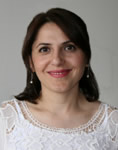 |
Dr. Birgül Açıkyıldız-Şengül
Ph. D. in Art History, University of Paris I Panthéon-Sorbonne (2006)
Current Position: Assistant Professor at Mardin Artuklu University, Department of History of Art
“A City at the Crossroads of 19th century Transformations: Mardin”
Dr. Açıkyıldız-Sengül’s research aims to trace the effects of 19th century Ottoman modernization on the transformations and changes in the religious and public architectural structures and decorations within the city of Mardin. |
|
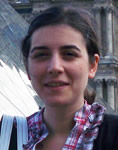 |
Dr. İkbal Elif Mahir Metinsoy
Ph. D. in Contemporary and Modern Turkish History, Universite de Strasbourg Cultures et Societes en Europe (2012) and Boğaziçi University, Atatürk Institute for Modern Turkish History (2012)
“Changing Fashions of Ottoman Women during the Second Constitutional Period (1908-1923)”
Dr. Mahir Metinsoy’s research project focuses on clothing of Ottoman women, as a reflection of culture, norms and belief systems of Ottoman Turkish society between 1908 and 1923. |
|
 |
Dr. İlgim Veryeri Alaca
Ph.D. in Fine Arts, Hacettepe University (2005)
Current Position: Assistant Professor at Koç University, Departmet of Media and Visual Arts
“Exploring and Preserving Turkish Art and Cultural Heritage through Picture Books and Art Education Activities for Children”
Dr.Veryeri Alaca’s study aims to develop a platform in the field of picture books in relation to art education derived from Turkish arts and culture, with the intent of mapping recent research, new advancements and identifying needs in the field of Turkish children books. |
|
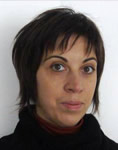 |
Dr. Lilyana Stankova
Ph.D. in Art History, University of Sofia, Bulgaria (2011)
“Intercultural Exchange in Ornamental Practices in the Balkans during the Ottoman Period: Orthodox Liturgical Metalwork Objects and Woodcarving in Relation to Ottoman Aesthetics”
Dr. Stankova’s research aims to enhance understanding about the importance of the Balkans in the Ottoman period, as an important zone of intercultural exchange and a center for the production of objects with characteristics specific to the Balkans. |
|
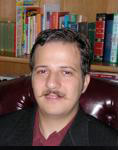 |
Dr. Mehmet Ali Sanlıkol
Ph.D. in Composition, New England Conservatory (2004)
Brown University & Emerson College, Visiting Fellow at Harvard University, Center for Middle Eastern Studies and Music Department
“19th century Classical Ottoman / Turkish Music Notated in Byzantine Neumes”
Dr. Sanlıkol’s study will transcribe more than 200 classical Ottoman / Turkish music compositions from Byzantine neumatic notation into current notation used in classical Turkish music, and analyze the historical as well as musical contributions of these compositions. |
|
|
|
|
Dissertation Research Fellows
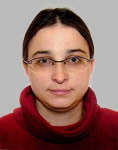 |
Adrienn Papp
Ph.D. Candidate, Archaeological history, Eötvös Lorand University of Science
Archaeologist, Budapest History Museum, Department of Middle Ages Research
“Thermal Baths in Buda in the Ottoman Period of Hungary”
Ms. Papp’s archaeological study aims to shed light on the history of Ottoman thermal baths in Buda, Hungary. The project accomplishes this by analyzing four Ottoman baths in Buda. The research will focus on the architects of the structures, their constructions techniques, history, status and analogues within in the Ottoman Empire, how they were viewed during the Ottoman period, and their status in the town of Buda. |
|
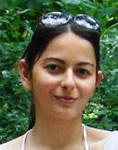 |
Aude Aylin de Tapia
Ph.D. Candidate, Ottoman History, Ecole des Hautes Etudes en Sciences Sociales (EHESS), Paris
“Orthodox Christians and Muslims in 19th century Cappadocia: Everyday Life, Languages, Culture and Socio-economic Relations”
Ms. De Tapia’s research studies relations between Orthodox-Christians and Muslims in 19th century Cappadocia. The main focus of the research is to understand how people from different religious backgrounds lived harmoniously side by side until the population exchange of the 1920s. |
|
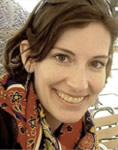 |
Elizabeth Nolte
Ph.D. Candidate, Modern Turkish Literature, University of Washington
“Charting the Troubled Times: Locating Ahmet Hamdi Tanpınar's Literary Legacy in the Era of Republican Transformations”
Ms.Nolte’s study aims to present a detailed contextualization of one period of Turkish literary history with a specific focus on the work of Ahmet Hamdi Tanpinar. Additionally, the research will promote Turkish cultural and literary history in the fields of comparative literature and world literature studies, with the goal to encourage further research of modern Turkish literature. |
|
 |
Gözde Yazıcı Çörüt
Ph.D. Candidate, Ottoman and Russian History, University of Manchester
“The Muslim Population of the Kars Oblast at the Russo-Ottoman border between 1877 and 1914”
Ms. Çörüt’s study explores stories of Muslims of the Kars oblast, who straddled Russian and Ottoman empires, with the intent of ascertaining how people took opportunities presented to them by the new Tsarist rule, while still being impacted by the Ottoman legacy. The research aims to reveal the dynamics of interactions, transfers and competitive claims at this Russo-Ottoman frontier. |
|
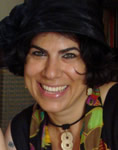 |
Kiraz Perinçek Karavit
Ph.D. Candidate, Cultural and Artistic Interactions in Asia, Boğaziçi University
“Mobile Art along the Silk Road: Mehmed Siyah Kalem's Paintings”
Ms. Perincek Karavit’s study focuses on the transmission of images, styles, and iconography between China and Central Asia through the paintings of Mehmed Siyah Kalem, a painter who most probably lived around 15th century in a rural hinterland and was exposed to Chinese influence. By extension, the project will explore the possible transfer of symbols, meaning and artistic impact between Chinese sources and Central Asian art during the Middle Ages. |
|
 |
Nick Danforth
Ph.D. Candidate, Modern Turkish History, Georgetown University
“The History of Hatay as a Turkish Province”
Mr. Danforth’s study will examine the history of Hatay during the 1940s and 1950s in order to explore the economic, social and political developments that occurred in the province of Hatay in the decades following its 1939 re-unification with Turkey. The study aims to understand how the government policies and local practices helped resolve tensions among the diverse communities of Hatay with a view to enhance understanding about the formation of modern Turkey. |
|
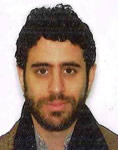 |
Nir Shafir
Ph.D. Candidate, Ottoman History, University of California, LA
“The Road from Damascus: Travel and Knowledge in the Ottoman Empire, 1620-1720”
Mr. Shafir’s research examines how major Ottoman intellectuals began to undertake and record detour-rich pilgrimages in the late 17th century; and explores how these travels functioned not only as a pilgrimage itinerary, but also as a forum for social commentary and as a means for claiming the validity of experiential and even empirical or naturalistic knowledge. |
|
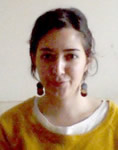 |
Pınar Ceylan
Ph.D. Candidate, Economic Study, London School of Economics and Political Science
“Ottoman Inheritance Inventory: A Source for Economic Geography and Price History”
Ms. Ceylan’s research aims to explore the role of culture and institutions in shaping economic outcomes, by creating a detailed survey of the Ottoman inheritance inventory as a legal document that reflects Islamic inheritance laws, and provides a documentation of local and imported textiles consumed during the early modern Ottoman era. |
|
 |
Rüstem Ertuğ Altınay
Ph.D. Candidate, Performance Studies, New York University
“Catching the Trains: Fashion, Modernization, and National Identity in Turkey”
Mr. Altınay’s research investigates the role of fashion and embodied practices in regulating the politics of belonging and subjectivity. It analyzes how the body of the national subject has been defined in relation to the multiple and shifting discourses of modernization throughout the history of the Republic of Turkey. |
|
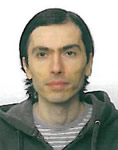 |
Stefan Peychev
Ph.D. Candidate, Urban history, University of Illinois at Urbana-Champaign
“Public Baths and Urban Space: The Case of Ottoman Sofia”
Mr. Peychev's research concerns the relationship between built and imagined space, the effects of political and cultural forces on urban development, and the construction of city images. The focus is on the roles Ottoman public baths played in the development of urban space in Sofia. As a contribution to the study of Ottoman Sofia's urban topography, the project also aims at bringing forward a reevaluation of the Ottoman cultural heritage in the Balkans. |
|
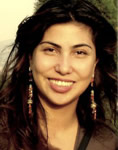 |
Zehra Tonbul
Ph.D. Candidate, History of Architecture, Boğaziçi University
“German Academic Formalism and its Influence on the Historiography of Medieval Art and Architecture of Turkey”
Ms. Tonbul’s research concerns the impact of the Austro-German formalist school of art history on the formation of an academic field of art history in 20th century Turkey. She approaches the topic from three standpoints: general world art and architectural historiography, medieval Anatolian history, and late Ottoman historiography, mainly of the İttihat Terakki period. |
|
|
Observations by our 2012-2013 Fellows
2017 Fellows
2016 Fellows
2015 Fellows
2014 Fellows
2012-2013 Fellows
2011-2012 Fellows
2010-2011 Fellows
2009-2010 Fellows
2008-2009 Fellows
|